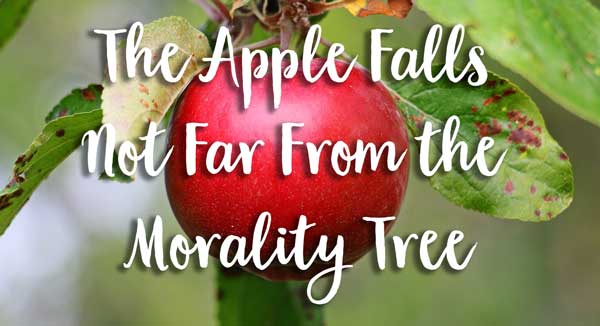Almost a year ago, Gallup conducted a survey on the moral value of Americans. More than three in four Americans reported morals in the U.S. as getting worse. Surprisingly, there was little difference in the opinions of Democrats and Republicans — both were equally negative.
Moral values having anything to do with politics is alarming. Moral values are knowing the difference between right and wrong and having a willingness to do the right thing, even if it is hard or dangerous. Americans entered WWII because they believed that it was ethically the right thing to do, even though it was dangerous for the individuals who served and for the country as a whole. Americans valued democracy and freedom and were willing to fight for it.
The Ten Commandments define for believers what is right or wrong. Values are defined as those things that are important to an individual or group. Core values may include integrity, professionalism, caring, teamwork, and stewardship when applied to an organization’s vision. The aforementioned core values are part and parcel of the Stewardship Foundation, and form the basis for our ethics.
When we perform ethically, we behave in a manner that is consistent with what we believe to be right or moral. We specifically apply these ethics to our own core belief that financial riches are to be shared, and that faithfulness to God commands that we be good stewards of the riches that we share.
Our Credo is on our website, but those who visit our blog more frequently than our website, they bear repeating:
- We believe in transformational giving.
- We believe that giving is a collaborative act between the donor, the charity, and their God
- We believe that transformational giving is not about the bottom line, but about the heart.
- We believe that transformational giving creates partnerships that impact entire communities.
- We believe in the sanctity of human life, marriage and sexual morality, and religious freedom and the rights of conscience.
- We believe that it is our responsibility to care for the poor, the sick and the disadvantaged, and to use our talents for the betterment of mankind through education, opportunity and freedom.

We also believe that those who seek to invest their money through an organization like ours do so because of shared moral values, and whether our clients are Democrats or Republicans, both do so because of equally positive motives. We have choices where and how we invest. What’s more important—social and moral responsibility, or profitability? We believe that both are equally important and that’s why we work hard everyday to manage funds that do both.
 According to Gary Thomas, author of Sacred Marriage, “We have to stop asking of marriage what God never designed it to give—perfect happiness, conflict-free living, and idolatrous obsession.” He describes marriage as a partnership where one man and one woman share spiritual intimacy and, because they are gifted with strength from one another, work to perfect the techniques and abilities to pursue God together.
According to Gary Thomas, author of Sacred Marriage, “We have to stop asking of marriage what God never designed it to give—perfect happiness, conflict-free living, and idolatrous obsession.” He describes marriage as a partnership where one man and one woman share spiritual intimacy and, because they are gifted with strength from one another, work to perfect the techniques and abilities to pursue God together.